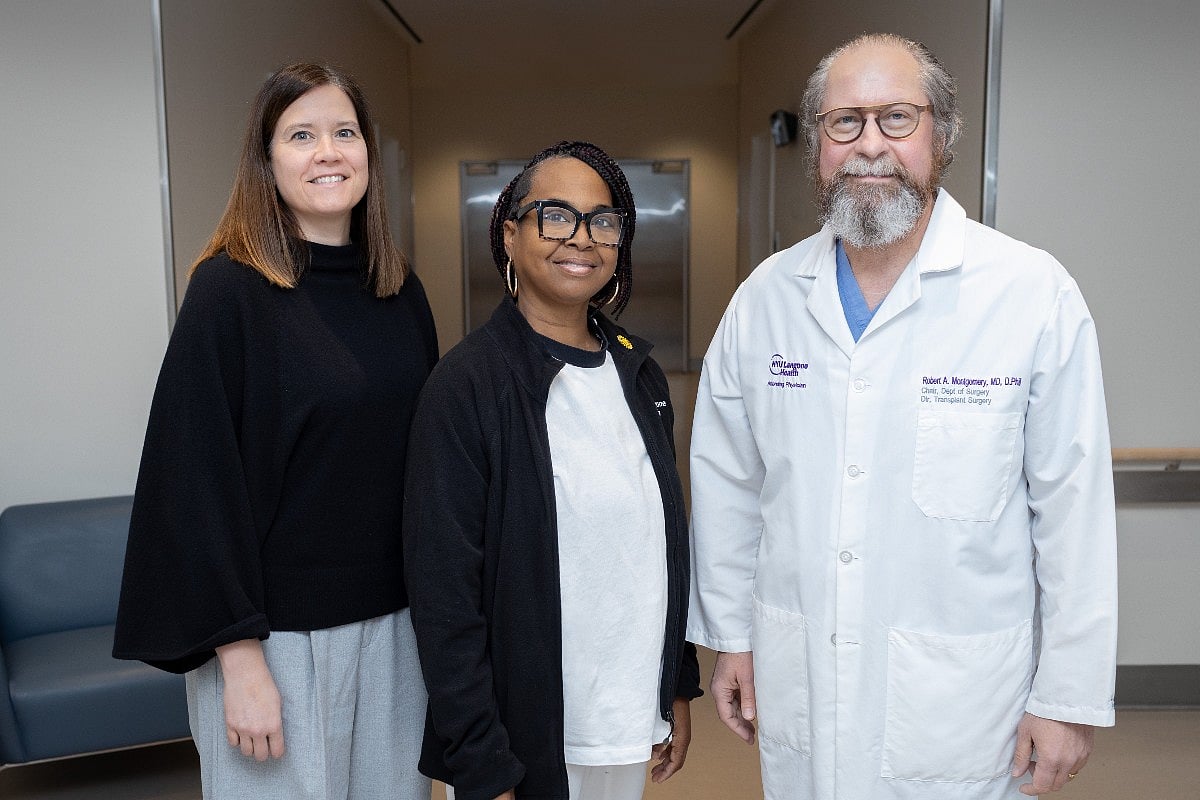Get Healthy!

- Ernie Mundell
- Posted December 17, 2024
U.S. Woman Living Healthy With Kidney Sourced From Pig
A 53-year-old woman from Alabama has a new lease on life after receiving a gene-edited kidney obtained from a pig, living healthily with the new organ for over a month, her New York City doctors announced Tuesday.
Towana Looney's road to kidney failure began with the ultimate gift: In 1999, she donated one of her kidneys to her ailing mother.
However, complications from a pregnancy later on led to a spike in blood pressure that pushed her remaining kidney into kidney failure, explained her doctors at NYU Langone.
By late 2016, Looney was requiring kidney dialysis to survive and a few months later she was placed on the kidney transplant list. Her candidacy for a human kidney was limited by the high likelihood, in her case, that her immune system would reject the donor's organ.
Time was running out, because over the next eight years Looney kept losing blood vessels crucial to supporting dialysis.
Finally, she qualified for the "compassionate use" clause of a U.S. Food and Drug Administration "expanded access" program that involved the experimental use of pig kidneys.
In Looney's case, the porcine kidney had undergone 10 genetic edits to make it suitable for transplant into humans.
This type of species-to-species transplant -- called xenotransplantation -- is still in its infancy, but a month after her transplant, Looney is in good health, her doctors said.
“It’s a blessing,” she said in a Langone news release. “I feel like I’ve been given another chance at life. I cannot wait to be able to travel again and spend more quality time with my family and grandchildren."
Looney's case is only the third worldwide in which a gene-edited pig kidney has been transplanted into a human, and she is the only person currently living with any type of pig organ. She's also the only person to receive a pig kidney with 10 separate genetic edits, allowing the organ to function normally within a person.
“Towana represents the culmination of progress we have made in xenotransplantation since we performed the first surgery in 2021," said Dr. Robert Montgomery, who led the complicated transplant operation. "She serves as a beacon of hope to those struggling with kidney failure. All the physicians, researchers, nurses, administrators and perioperative care teams at NYU Langone Health involved in making this moment possible are so thrilled for her, and I couldn’t be more proud of what they have done to improve Towana’s life through this incredible scientific achievement.”
Looney's first stop on the journey to a pig kidney transplant was back home in Alabama, where she came under the care of Dr. Jayme Locke, an innovative transplant surgeon working at the time at the University of Alabama, Birmingham.
It was Locke who presented Looney as a candidate for the FDA's expanded-access program. The program allows patients in dire straits the opportunity to undergo xenotransplantation.
Locke's investigations helped confirm that the gene-edited pig organ would, in fact, work properly within Looney's body, ensuring that the application was approved.
Montgomery had actually mentored Locke, and that partnership helped speed the process.
According to the Langone news release, nearly 104,000 people across the United States are currently on the waiting list for an organ transplant, with over 90,400 of those patients waiting for a kidney.
The situation for many is dire: Over 808,000 Americans currently have end-stage kidney disease, but only 27,000 people were able to receive a new kidney in 2023.
More information
Find out more about organ transplants at the United Network for Organ Sharing (UNOS).
SOURCE: NYU Langone news release, Dec. 17, 2024







